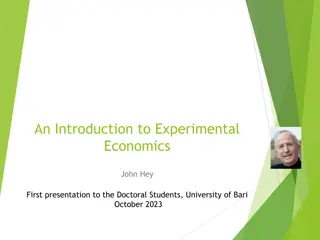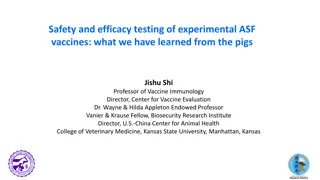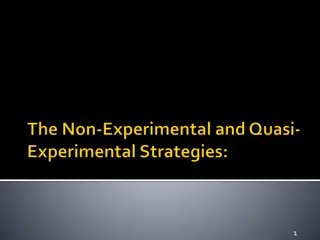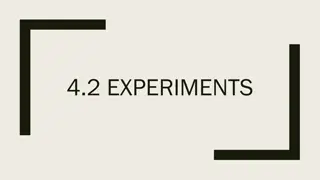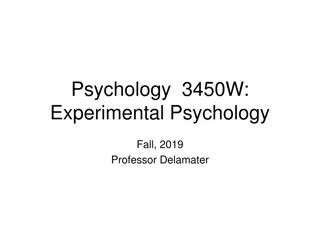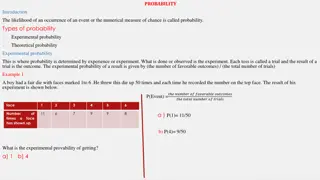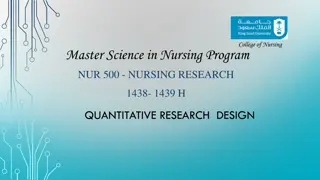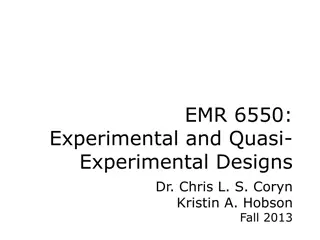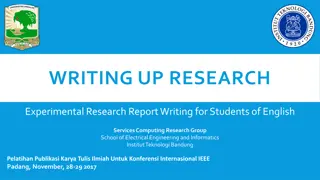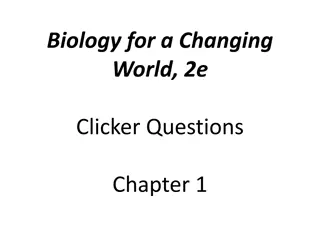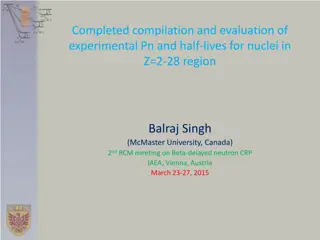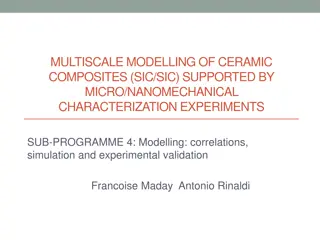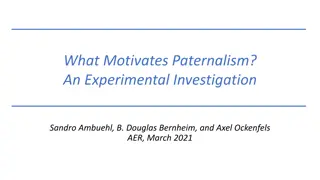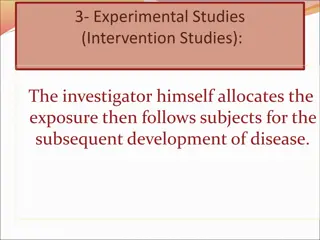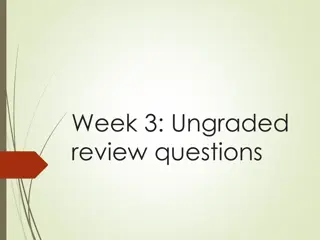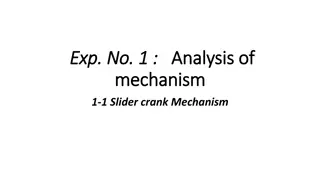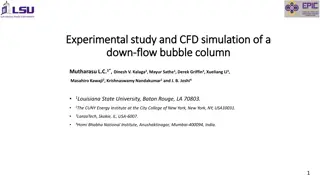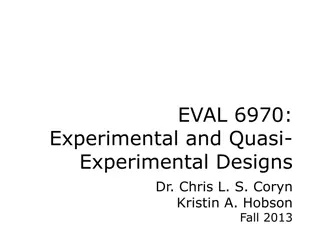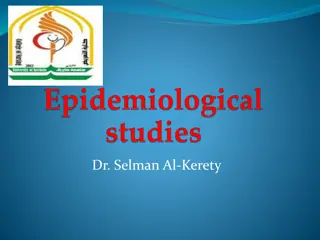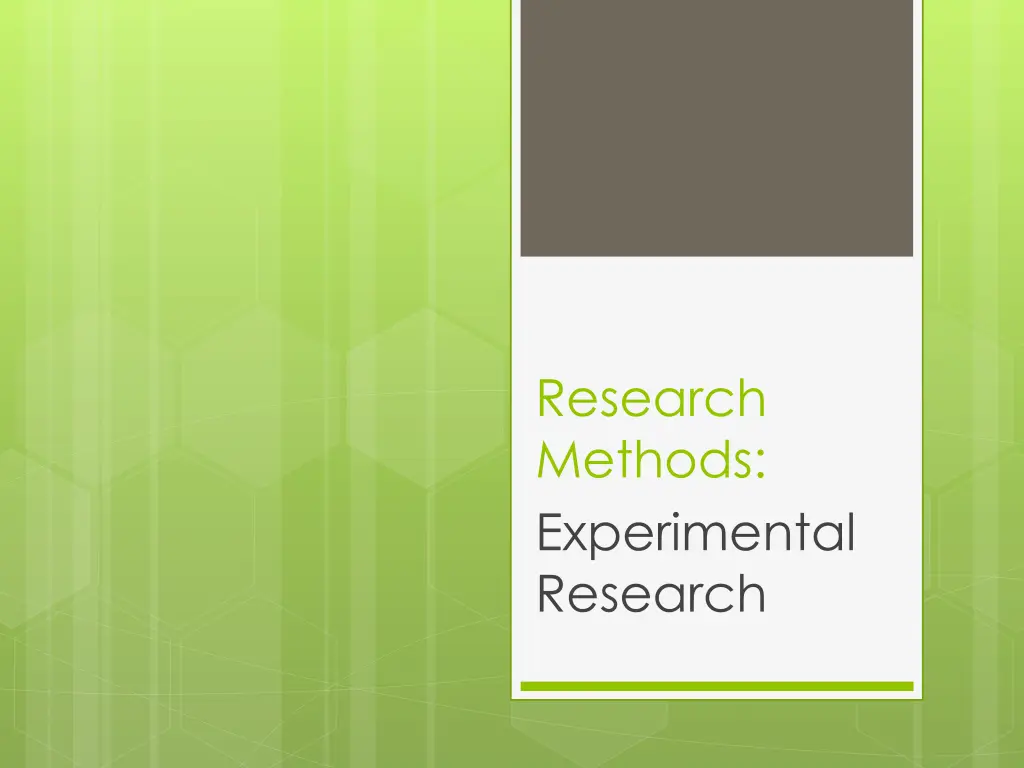
Effective Steps in Scientific Investigation
Understand the significance of research by exploring experimental research methods, primary goals, hypothesis formulation, theory usage, and step-by-step scientific investigation procedures. Learn about formulating testable hypotheses, selecting research methods, collecting data, and more to enhance your research skills.
Download Presentation

Please find below an Image/Link to download the presentation.
The content on the website is provided AS IS for your information and personal use only. It may not be sold, licensed, or shared on other websites without obtaining consent from the author. If you encounter any issues during the download, it is possible that the publisher has removed the file from their server.
You are allowed to download the files provided on this website for personal or commercial use, subject to the condition that they are used lawfully. All files are the property of their respective owners.
The content on the website is provided AS IS for your information and personal use only. It may not be sold, licensed, or shared on other websites without obtaining consent from the author.
E N D
Presentation Transcript
Research Methods: Experimental Research
Why is it important to do research?
Primary Goals in Conducting Research 1. Measurement & Description Must figure out way to measure what is being studied 2. Understanding & Prediction Can explain reason for an event believe event is understood 3. Application & Control
The Hypothesis Hypothesis-a tentative statement about the relationship between 2 or more variables Variable- any measureable condition, event, characteristic, or behavior controlled or observed in a research study
Using Theories Theory- system of interrelated ideas used to explain a set of observations Advanced understanding gained by theories guides future research How? Theory must be testable Most theories very complex
The Scientific Investigation: Step- by-Step Step 1: Formulating a Testable Hypothesis Hypothesis has to be precise Variables must be clearly defined Operational definition-describes actions/operations that will be used to measure/control a variable
The Scientific Investigation: Step- by-Step Step 2: Select Research Method/Design Study Method chosen depends on question being studied Make detailed plans to conduct study Choose subjects Subjects/participants- persons/animals whose behaviors are systematically observed in a study
The Scientific Investigation: Step- by-Step Step 3: Collect Data Data collection techniques- procedures for making empirical observations and measurements Common techniques: direct observation, questionnaires, interviews, psychological tests, physiological recordings, examining archival records
The Scientific Investigation: Step- by-Step Step 4: Analyze Data/Draw Conclusions Observation made converted into raw data (numbers) Statistics used to analyze data Is hypothesis supported
The Scientific Investigation: Step- by-Step Step 5: Report Findings Detailed summary of study and findings written Reports delivered at scientific meetings Submit to journals for publication
The Professional Journal Journal- periodical that publishes technical and scholarly material, usually in a narrowly defined area of inquiry What is the purpose? Peer-review process- submission carefully examined by experts to ensure reliable findings published Why is this a major strength?
Advantages of the Scientific Approach Clarity & Precision People must clarify exactly what is being hypothesized Relative Intolerance of Error
Experimental Research Methods Experiment- research method in which the investigator manipulates a variable under carefully controlled conditions and observes whether any changes occur in a 2nd variable as a result Allows for detection of cause and effect relationship Purpose: does change in one variable cause change in another?
Independent & Dependent Variables Independent Variable- condition/event experimenter varies in order to observe its impact on another variable Dependent Variable- variable thought to be effected by manipulation of the independent variable
Experimental & Control Groups Experimental Group- subjects who receive special treatment in regard to the IV Control Group-similar subjects who do not receive special treatment given to experimental group Very Important that both groups are similar except for the different treatment received in regards to the IV
Other Variables Extraneous Variables- any variable other than the IV that seem likely to influence the DV in a study Confounding of variables- occurs when 2 variables are linked in a way that makes it hard to sort out their specific effects When extraneous variable confounded with IV cannot tell which effects DV
Other Variables Cont Random assignment- occurs when all subjects have an equal chance of being assigned to any group/condition in the study Sometimes it is useful to have 1 group exposed to 2 experimental conditions
Advantages/Disadvantages of Experimental Research Permits conclusions about cause and effect relationships Artificial Cannot be used to explore some research questions

